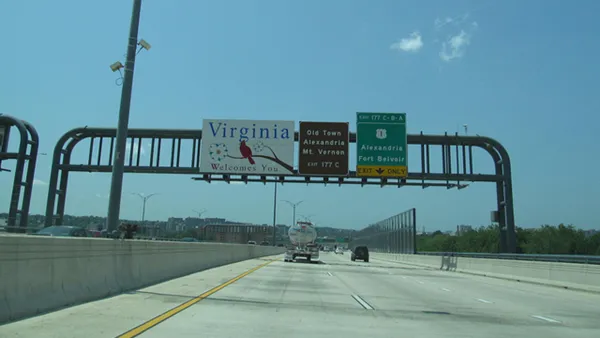That could be one explanation for the popularity of the I-95 Express Lanes, called Lexus Lanes by opponents because of the toll paid by solo drivers. While the toll has increased, so has their popularity with drivers, even with the maximum $7 toll.
Back in June, we posted "HOT [High Occupancy Toll] Lanes Slow to Catch on With Users". Evidently, motorists using Florida's I-95 Express Lanes failed to get the message. As "About.com Miami" indicates, "Despite the controversy surrounding the so-called 'Lexus Lane', 95 Express has proved extremely popular with commuters seeking to shave time off their commutes."
Kenny Malone writes on Florida Department of Transportation's latest problem in managing the five-year old express lanes, converted from high-occupancy vehicle lanes in late 2008. They've become so popular that the price increases implemented through the system’s "dynamic tolling" to maintain traffic flow at 45 mph are having a diminished effect.
Tolls on the "95 Express lanes range from $0.25 to a $7.00 maximum, meaning drivers can only be charged up to that amount depending on how many tolls they pass on one trip."
New numbers from FDOT suggest drivers are quickly desensitizing to Lexus lane sticker shock. As of October, there had already been 112,119 $7.00 trips through the express lanes just this year. That’s a 125-percent increase over 2012, 2011 and 2010 combined.
The $7 "cap" presents a problem, similar to caps on gas tax inflation adjustments seen most recently in Pennsylvania (which lifted its cap in November) though of a different nature.
“If we do not raise the toll cap we will continue to have difficulties in achieving the department’s goal of a minimum 45 mph 90 percent of the time during peak periods,” says Rory Santana, Miami's 95 Express manager.
Well-functioning HOT lanes lift all boats, er, vehicles.
According to the General Summary of the 95 Express Annual Report (PDF) released in April, "Drivers travelling via the general purpose lanes (GPL) have also experienced a significant peak period increase in average travel speed since implementation of 95 Express, from an average of approximately 15 MPH (southbound) and 20 MPH(northbound) to a monthly average of 50 MPH and 42 MPH, respectively."
As we noted in January, 2010, the new 95 Express Buses also proved to be a hit with commuters. The challenge facing FDOT now will be to raise the toll cap to ensure that all lanes operate efficiently.
FULL STORY: Express-Lane Congestion Elicits Toll Hikes On I-95

Analysis: Cybertruck Fatality Rate Far Exceeds That of Ford Pinto
The Tesla Cybertruck was recalled seven times last year.

National Parks Layoffs Will Cause Communities to Lose Billions
Thousands of essential park workers were laid off this week, just before the busy spring break season.

Retro-silient?: America’s First “Eco-burb,” The Woodlands Turns 50
A master-planned community north of Houston offers lessons on green infrastructure and resilient design, but falls short of its founder’s lofty affordability and walkability goals.

Test News Post 1
This is a summary

Analysis: Cybertruck Fatality Rate Far Exceeds That of Ford Pinto
The Tesla Cybertruck was recalled seven times last year.

Test News Headline 46
Test for the image on the front page.
Urban Design for Planners 1: Software Tools
This six-course series explores essential urban design concepts using open source software and equips planners with the tools they need to participate fully in the urban design process.
Planning for Universal Design
Learn the tools for implementing Universal Design in planning regulations.
EMC Planning Group, Inc.
Planetizen
Planetizen
Mpact (formerly Rail~Volution)
Great Falls Development Authority, Inc.
HUDs Office of Policy Development and Research
NYU Wagner Graduate School of Public Service


























